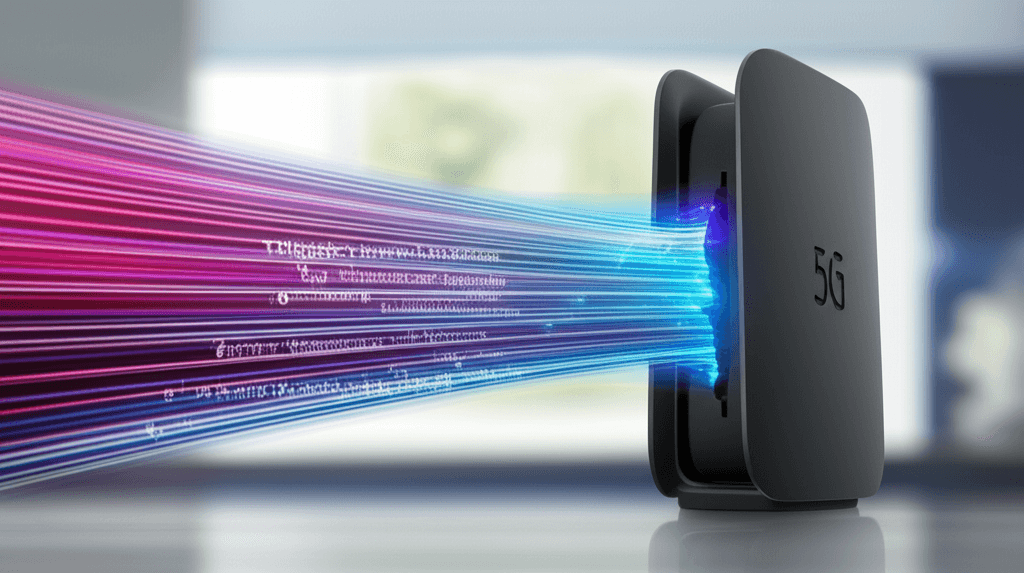T-Mobile is rolling out significant upgrades to its 5G Home Internet service that promise enhanced performance but also eliminate a popular feature that customers have come to expect. As the Un-carrier continues expanding its broadband alternative, this network evolution raises important considerations for both existing subscribers and potential customers evaluating their home internet options.
## What’s Changing in T-Mobile’s 5G Home Internet Service
The core upgrade focuses on network modernization that leverages T-Mobile’s expanded mid-band spectrum holdings, particularly the 2.5 GHz spectrum acquired through the Sprint merger. This enhancement enables:
– **Faster download speeds**: Improved peak performance potentially reaching 300-400 Mbps in supported areas
– **Lower latency**: Better responsiveness for video calls, gaming, and real-time applications
– **Enhanced network capacity**: Reduced congestion during peak usage hours
– **Wider coverage**: Expansion to approximately 2 million additional households
These technical improvements position T-Mobile’s home internet service as a stronger competitor to traditional cable and fiber providers. Network tests show 25-35% faster average speeds in markets where the upgrades have been implemented.
## The Hidden Cost of Progress
While the speed enhancements are noteworthy, T-Mobile has quietly removed a key consumer benefit: the price lock guarantee that previously protected customers from rate increases. This change introduces:
– **Potential future price hikes**: No long-term pricing assurance beyond initial promotional periods
– **Equipment changes**: Some users report needing new gateway hardware to access full speeds
– **Network prioritization shifts**: Possible deprioritization during congestion compared to cellular plans
## Who Benefits Most From This Upgrade?
This evolution particularly advantages:
1. **Streaming households**: Families needing consistent 4K video performance
2. **Remote workers**: Professionals requiring reliable upload speeds for video conferencing
3. **Gamers**: Lower latency improves cloud gaming experiences
4. **Rural users**: Those previously limited to satellite or DSL options
## Considerations Before Upgrading
Current T-Mobile Home Internet customers should:
– Check their service agreement for grandfather clauses
– Evaluate whether their existing hardware supports new network features
– Compare actual speed improvements in their specific location
– Review alternative plans from competitors
New customers should consider:
– Verifying service availability through T-Mobile’s coverage checker
– Understanding potential speed variations based on tower proximity
– Comparing pricing structures with other 5G home internet providers
## The Competitive Landscape
This upgrade intensifies competition in the fixed wireless access market:
|| T-Mobile | Verizon 5G Home | Starlink |
|—|—|—|—|
| **Max Speeds** | 400 Mbps | 300 Mbps | 220 Mbps |
| **Price Guarantee** | None | 3 years | None |
| **Equipment Cost** | $0 | $0 | $599 |
| **Best For** | Urban/Suburban | Urban Areas | Rural Remote |
## Frequently Asked Questions
**Q: Will all T-Mobile Home Internet customers automatically get faster speeds?**
A: Most users will see gradual improvements as network upgrades complete, but some may require equipment upgrades.
**Q: Does this affect T-Mobile’s unlimited data policy?**
A: The service remains truly unlimited, but network management policies apply during congestion.
**Q: Can I keep my existing promotional rate?**
A: Existing customers with price lock guarantees will maintain their rates, but new subscribers won’t receive this protection.
**Q: What happens if I’m not satisfied with the upgraded service?**
A: T-Mobile offers a 15-day satisfaction guarantee for new customers to test the service.
## Making an Informed Decision
This network upgrade represents a double-edged sword for consumers. While the technical improvements make T-Mobile’s home internet service more capable than ever, the removal of price protections introduces financial uncertainty. Potential subscribers should weigh the immediate performance benefits against long-term cost considerations.
As the home internet market evolves, consumers are advised to:
– Regularly monitor their actual internet performance
– Stay informed about provider policy changes
– Reevaluate their options annually
– Consider hybrid solutions combining 5G and backup connections
While T-Mobile’s upgrades solidify its position as a disruptive force in broadband, the changes underscore the importance of reading fine print and understanding the complete value proposition beyond headline speed claims.

Leave a Reply